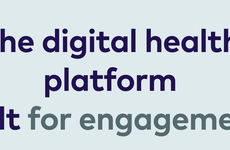
Alliance of Chicago Has Been Serving Low-Income Communities Since '97
Tiana Reid — January 9, 2013 — Social Good
References: alliancechicago.org & givetogetjobs
Alliance of Chicago Community Health Services offers resources and care to low-income communities and people who do not have insurance. Compared to the majority of industrialized countries, it's no secret that the United States is and has been lagging behind in terms of keeping its citizens healthy -- and this is despite President Barack Obama's health care reform initiatives.
As a network that doesn't look at health care as a business, cooporation is key here to how the Alliance of Chicago operates, which is done primarily through the Integrated Service Networks Initiative (ISDI). The group's vision is also brought to life through Health Information Technology (HIT). Currently, the Alliance is registered as a low-profit limited liability corporation (LLC) and has been since 2002.
Contact Information
Alliance of Chicago website
As a network that doesn't look at health care as a business, cooporation is key here to how the Alliance of Chicago operates, which is done primarily through the Integrated Service Networks Initiative (ISDI). The group's vision is also brought to life through Health Information Technology (HIT). Currently, the Alliance is registered as a low-profit limited liability corporation (LLC) and has been since 2002.
Contact Information
Alliance of Chicago website
Trend Themes
1. Integrated Service Networks Initiative (ISDI) - The Alliance of Chicago utilizes the ISDI approach to deliver healthcare resources and care to low-income communities, offering opportunities for disruptive innovation in healthcare delivery.
2. Health Information Technology (HIT) - The use of HIT by the Alliance of Chicago enables efficient and effective healthcare management, providing potential disruptive innovations in health data analysis and patient monitoring.
3. Low-profit Limited Liability Corporation (LLC) - The Alliance of Chicago's LLC status allows for unique opportunities in combining social impact initiatives and sustainable business practices to address healthcare disparities in low-income communities.
Industry Implications
1. Healthcare - The healthcare industry can explore disruptive innovation in community-based healthcare models that prioritize equitable access and address the needs of low-income communities.
2. Health Information Technology - The Health IT industry can innovate in developing new tools and technologies for efficient and secure management of health information in community healthcare settings.
3. Social Impact - Organizations in the social impact sector can explore disruptive models of combining philanthropic efforts and sustainable business practices to address healthcare disparities in underserved communities.
0.9
Score
Popularity
Activity
Freshness























